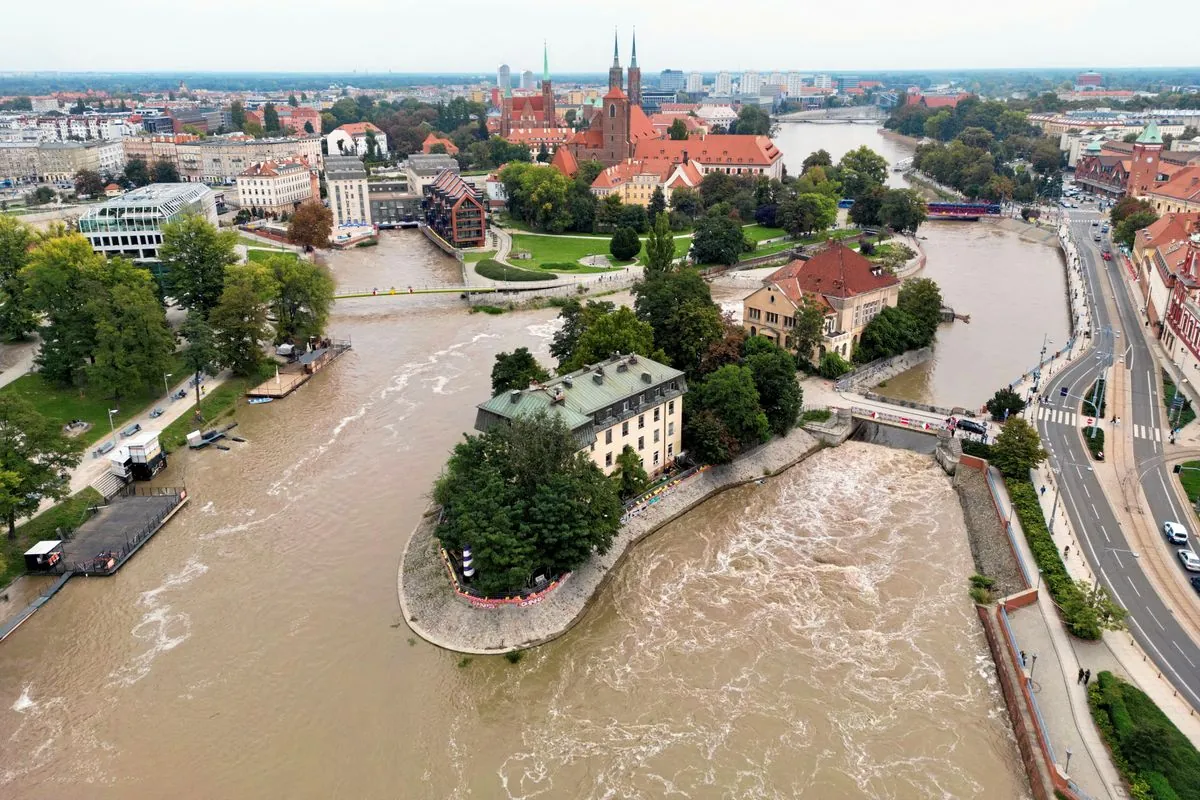As of September 19, 2024, Wroclaw, Poland's third-largest city, is facing the peak of flood waters following the worst deluge to hit Central Europe in at least two decades. The flood wave, which began at the Polish-Czech border the previous weekend, has now reached this historic city, often called the "Venice of Poland" due to its numerous waterways.
Prime Minister Donald Tusk cautioned against premature relief, stating, "It is too early to announce that the flood in Wroclaw has been overcome." The city, situated on the Oder River, Poland's second-longest, has a history of battling severe floods, with significant events in 1997 and 2010 prompting substantial investments in flood protection infrastructure.
The current floods have left a trail of destruction from Romania to Poland, resulting in at least 24 fatalities: five in the Czech Republic, seven in Romania, seven in Poland, and five in Austria. The deluge has caused extensive damage, with costs expected to run into billions of dollars.
In response to the crisis, European Commission President Ursula von der Leyen is scheduled to visit Wroclaw on the afternoon of September 19, 2024, to meet with Tusk and the prime ministers of the Czech Republic, Slovakia, and Austria. They will discuss aid for the affected regions, potentially utilizing the European Union's Solidarity Fund, which provides financial assistance to member states impacted by natural disasters.
Meanwhile, in Hungary, authorities are preparing for the rising Danube River. Prime Minister Victor Orban announced that water levels in Budapest are expected to peak on September 21, 2024, though they are anticipated to remain below the record levels seen in 2013.
"Hungary will do it, we will mount a successful defence against this flood as well."
The widespread flooding has mobilized significant resources across the affected countries. In Poland alone, 16,000 soldiers are assisting with flood relief efforts, alongside police and thousands of volunteers. This collaborative approach highlights the crucial role that volunteer efforts often play in flood response and recovery.
Climate scientists warn that such extreme weather events may become more frequent and severe due to climate change, underscoring the need for enhanced flood protection measures and disaster preparedness across Central Europe.
Amidst the crisis, Tusk also addressed the spread of false information, warning citizens about a person impersonating a soldier who had been spreading rumors about intentional destruction of flood defenses. The Polish Internal Security Agency (ABW) is investigating this incident, emphasizing the potential dangers of misinformation during disasters.
As Wroclaw and other affected areas continue to grapple with the immediate impacts of the floods, the long-term economic consequences are expected to persist for years. The meeting of EU leaders in Wroclaw represents a crucial step in coordinating recovery efforts and providing much-needed support to the flood-stricken regions of Central Europe.
